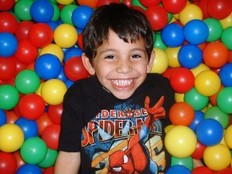
Speech-language therapists are medical professionals who are trained to identify and treat issues with feeding and swallowing which often go undetected and can be a serious threat to an individual’s health. These issues can include a dislike of foods or food textures or inability to properly swallow food and drinks. Difficulties in one or more of these areas include risk of pneumonia, malnutrition and dehydration. Swallowing issues can also affect babies. Infants who have difficulty latching, breast feeding, drinking from a bottle, weak lip muscles, difficulty transitioning from a bottle to soft foods, difficulty chewing, and choking/coughing due to eating can also benefit from therapy.






 RSS Feed
RSS Feed
